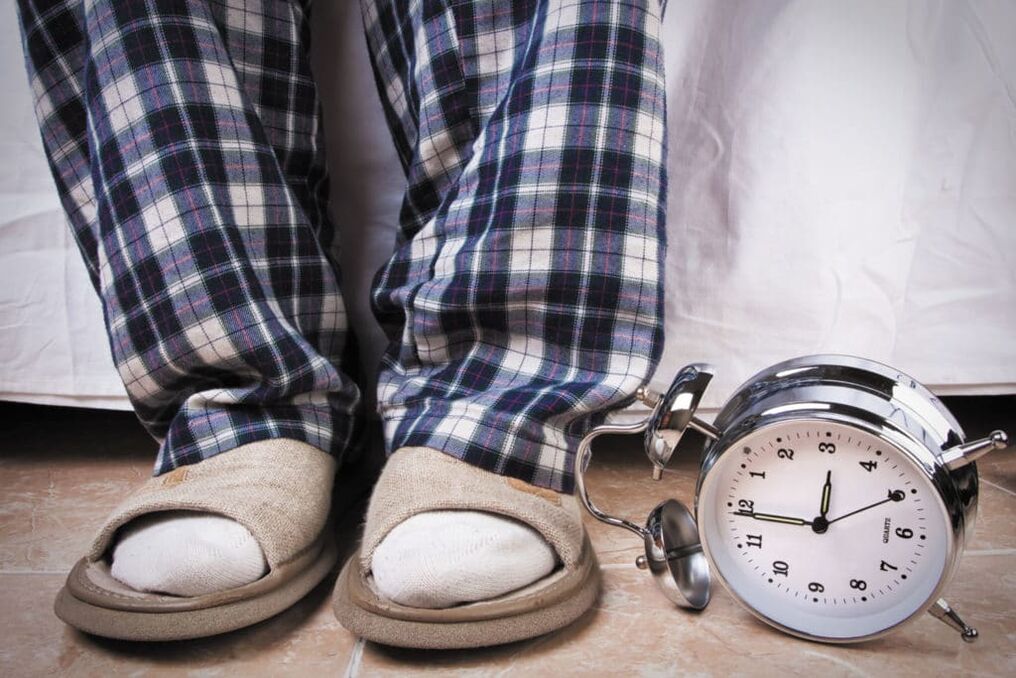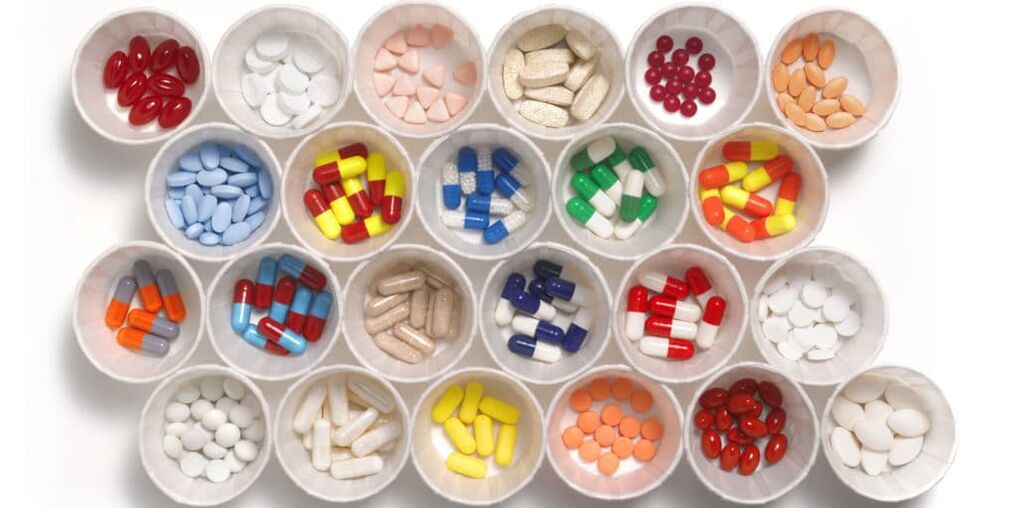Prostatitis is an inflammatory disease of the prostate gland, mainly affecting older men.According to statistics, one or another form of the disease is diagnosed in almost 40% of men over 50 years old.Congestive prostatitis is a non-infectious inflammation of the prostate gland due to violations of the organ's nutrition.
What is congestive prostatitis?
Congestive prostatitis develops due to disruption of nutritional processes in the prostate and pelvic organs.Trophism refers to all metabolic processes occurring in the organs - blood circulation, lymph movement, prostaglandin secretion dynamics.
The disease is characterized by a number of specific symptoms, the manifestation of which is due to swelling of the inflamed organ.Due to stagnant secretions of the prostate, its lobules are not completely emptied, leading to inflammation and enlargement of this organ.As a result of these processes, the prostate gland puts pressure on the bladder and urethra, which explains the appearance of symptoms of the disease.
Unlike the acute form of inflammation caused by pathogens, congestive prostatitis can occur for many years without obvious symptoms.During this period, there is a gradual disruption of the nutrition of the prostate gland, this organ is exhausted, and over time the disease becomes suddenly worse.
Congestive prostatitis is often diagnosed by chance, during a routine examination by a urologist or at the time of exacerbation, when a man is faced with pronounced symptoms.
The disease requires long-term complex treatment.The prognosis for recovery depends on the timely detection of congestive prostatitis.In some cases, men have to live with chronic inflammation for decades, requiring regular treatment to prevent the disease from getting worse.

Congestive prostatitis develops asymptomatically over many years.His treatment will also take a long time.
Reasons for development
Congestive prostatitis or chronic non-infectious prostatitis is a direct consequence of an unhealthy lifestyle.Metabolic disorders in the prostate develop over a long period of time.The causes of the disease are:
- physical inactivity;
- obesity;
- poor nutrition;
- Abstain from sexual intercourse;
- chronic stress;
- bad habits;
- varicose veins;
- chronic constipation.
The main enemy of prostate health is physical inactivity.Lack of physical activity leads to impaired blood circulation in the lower part of the body, including the pelvic organs, which over time causes thickening of prostatic secretions and the development of an inflammatory process.
Physical inactivity, being burdened by excess weight is a direct path to prostatitis.It is not without reason that people believe that congestive prostatitis is a disease of office workers, because sitting for a long time at a desk leads to poor circulation in the pelvis and prostate.
Chronic stress, decreased immunity, and hypothermia in the lower body are all indirect causes of prostatitis.With the stagnant, slow inflammatory process, these factors act as agents that aggravate the symptoms of the disease.
Another enemy of men's health is chronic constipation.Difficult and irregular bowel movements lead to thick stools that pass through the intestines, causing irritation to the prostate.At the time of bowel movements, the nutritional process is interrupted.With rare constipation, this is not dangerous, but frequent defecation disorders lead to irritation of the prostate and then the development of prostatitis.

Congestive prostatitis often causes distress for office workers.
Why is prostatitis dangerous?
Congestive prostatitis is accompanied by specific symptoms that significantly worsen the quality of life of men.In addition to constant discomfort, the disease also progresses, leading to the development of dangerous complications.
First of all, potency is affected.Poor circulation, thickened secretions and disruption of the prostate's contractile function lead to sexual intercourse that does not bring pleasure but is also accompanied by discomfort and pain.Over time, the problem becomes more serious, and in addition to decreased sexual desire, erectile dysfunction also occurs.Blood does not flow into the penis in sufficient quantities, leading to weakened erections and the threat of erectile dysfunction.
Congestive prostatitis can cause infertility in men.
A fairly common complication of low-grade inflammation is backflow of urine, which can cause kidney infection and the development of pyelonephritis.
Untimely treatment of congestive prostatitis can lead to the formation of stones in the prostate, the removal of stones often requires surgical intervention.
Symptoms of the disease
Symptoms of congestive prostatitis are manifested by poor urination.If the disease is not aggravated, the bladder will feel heavy, frequently need to go to the toilet, and urine pressure will weaken.Sometimes, pain can appear in the bladder area, spreading to the lower abdomen and perineum.The pain is spastic, spasms appear and then gradually subside.
When suffering from congestive prostatitis, men have problems with fertility and ejaculation.In this case, both an increase in the duration of sexual intercourse and premature ejaculation may occur.Climax is accompanied by pain in the urethra.
Signs of prostatitis with congestive prostatitis intensify at the time of exacerbation.This happens against the background of reduced immunity, severe stress, overwork or hypothermia.Symptoms appear acutely.The urge to urinate can be up to 8 times per hour.Emptying the bladder does not bring relief as it feels heavy and bloated.The pain syndrome presents acutely, with a feeling of heaviness in the rectum, caused by swelling of the prostate.In rare cases, hematuria (blood in the urine) may occur.After urinating and ejaculating, the urethra will feel intense pain and burning.
Congestive prostatitis is not a bacterial inflammatory condition, so an increase in temperature in this form of the disease is extremely rare.However, due to frequent discomfort in the perineum, symptoms of general discomfort are noted - drowsiness, irritability, loss of strength.Quite often, the process of congestive prostatitis is aggravated by insomnia due to increased need to go to the toilet at night, which is caused by swelling of the prostate in the evening and at night.

Frequent urination does not bring relief and prevents you from getting enough sleep
Diagnose
Congestive prostatitis is diagnosed when a urologist performs a rectal examination of the prostate.This is done using prostate massage or TRUS.
Ultrasound diagnosis is considered a low-information method because it indicates the presence of inflammation but does not indicate the nature of its development.For this reason, the most useful information is the analysis of prostate secretion.Based on the nature of changes in the composition of prostatic secretions, congestive prostatitis and its complications are diagnosed.
To rule out adenoma and other disorders, prostate MRI is additionally indicated.
Treatment principles
Treatment of congestive prostatitis is a long process.Therapy is aimed at reducing inflammation and swelling, improving hemodynamics and restoring metabolic processes in the organ.
In addition to specific therapy, patients are prescribed diet, physiotherapy and physiotherapy.All these methods have one goal - to normalize the flow of prostatic secretions and improve blood circulation in the organ.
Treatment with medication
For congestive prostatitis, treatment includes symptomatic and specific treatment.
Symptomatic treatment includes antispasmodics, analgesics, and nonsteroidal anti-inflammatory drugs.Such medications can relieve pain and discomfort, improve urination, but do not affect prostate function.
Unlike infectious prostatitis, with congestive inflammation in the secreting prostate gland, the causative agent cannot be detected, so treatment with antibiotics is not recommended.
Used to treat:
- alpha blockers;
- antispasmodic drugs;
- nonsteroidal anti-inflammatory drugs;
- herbal medicine;
- Rectal suppositories to restore prostate function.
Use of alpha blockers improves hemodynamics.These drugs relax muscles, reduce bladder tone, and make urination easier.For congestive prostatitis, treatment with these drugs is short-term due to many side effects.
To reduce inflammation, nonsteroidal anti-inflammatory drugs are used as tablets or rectal suppositories.Treatment lasts no more than a week, 1-2 suppositories per day.This reduces inflammation and swelling of the prostate, while also reducing pain.You can also get NSAID injections, but only as prescribed by your doctor.
Common antispasmodic medications help relieve pain in the bladder and perineal area.The drug is taken as needed, but not more than three times a day, one tablet.
The main part of the treatment of congestive prostatitis is the use of herbal medicines, vitamins and immunostimulants, this action is aimed at restoring the prostate.
Therapy can be supplemented with herbal remedies in suppositories containing bee products, ichthyol or pumpkin oil.Such drugs can be purchased at a pharmacy or prepared yourself.They have anti-inflammatory effects and stimulate the immune system.
You should consult your doctor about how to treat congestive prostatitis.The length of treatment depends on the severity of symptoms, but usually takes at least three months.

The main goal of therapy is to restore the function of the gland
Folk remedies
Treatment can be supplemented with folk remedies.The following recipes will help cure prostatitis.
- Eryngium or eryngium treatment for congestive prostatitis helps reduce inflammation and speed up prostate recovery.The roots of the plant are used for treatment.It is dried and crushed with a knife.Then 30 g of roots are poured into three cups of hot water and boiled over low heat for half an hour, avoiding boiling.Filter the decoction and drink half a glass daily for a month.
- Suppositories with propolis and honey will help reduce inflammation.To prepare, melt 200 g of badger fat, add 40 ml of propolis tincture and a large spoon of honey.The mass is poured onto cling film and left in the refrigerator.When the product hardens, people use a knife to cut it into small torpedo-shaped pieces, the size of a little finger.Such suppositories are stored in individual packaging in the refrigerator.Treatment lasts three weeks, suppositories are inserted into the anus at night, 1 tablet per day.
- To prepare healing candles, you can use cocoa butter and pumpkin seed oil.Ratio: add 100ml cocoa butter, 10ml pumpkin oil.
Folk remedies can also be used to prevent exacerbation of prostatitis.In this case, the course of treatment is reduced to two weeks.
Massage and physical therapy
For congestive prostatitis, prostate massage and physical therapy are indicated to improve blood circulation.Massage is performed in courses consisting of 10-15 procedures.
Physiotherapy methods are chosen by the doctor.Usually, acupuncture, hirudotherapy, electrophoresis, magnetic therapy and darsonvalization are performed for prostatitis.Good results are achieved with ultrasound and shock wave therapy.
Additionally, there are a number of prostatitis treatment devices designed for home use.Before purchasing such a device, you should consult your doctor.
Lifestyle and prevention
Giving up bad habits and having a balanced diet will help speed up recovery from prostatitis.It is recommended to include natural prostate protectors in the diet - pumpkin seeds, pumpkin seed oil, honey, citrus fruits, walnuts.
You should normalize your daily routine and exercise regularly.Regular sexual activity plays an important role in the treatment of congestive prostatitis, since sexual intercourse helps to eliminate the cause of the development of the disease - stagnation of prostatic secretions.
Once you understand what congestive prostatitis is, you should know how to prevent its development.Disease prevention is paying attention to your own health.To keep the prostate healthy, you need to give yourself moderate but regular physical activity, prevent hypothermia of the pelvic organs and strengthen the immune system.































